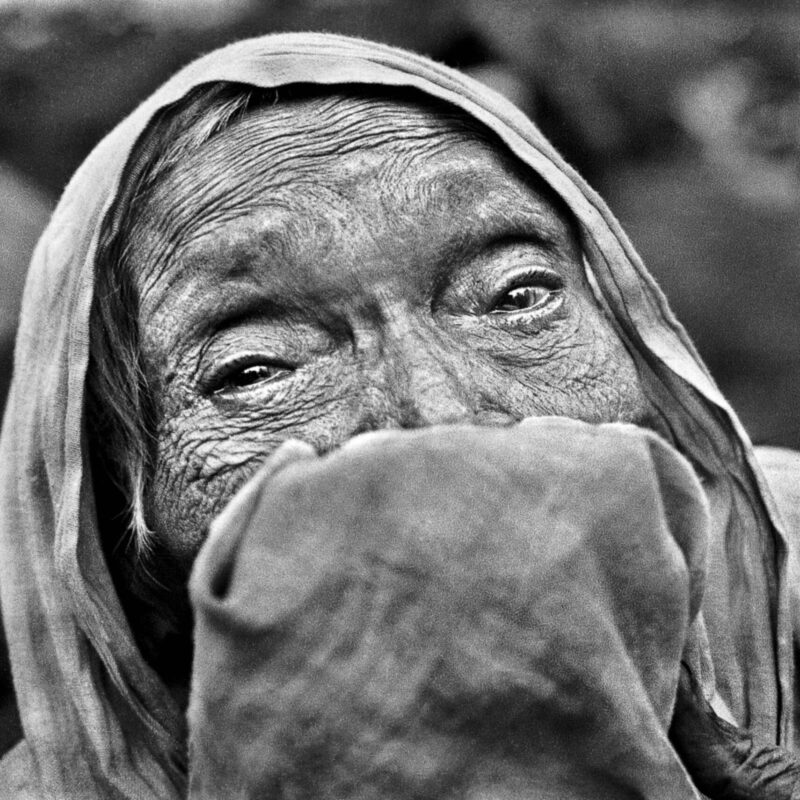
I was eight years old when the realization suddenly dawned on me: “One day I would have to die.”
As I started to cry, the full magnitude of the realization — that my parents would also have to die, thus forcing me to live in a world without them — began unfolding, and my crying quickly escalated to steady sobbing.
Stunned and confused by my sudden hysterics, my mom called my dad to have him calm me down. After I managed to explain to him — through the tears — why I was in such a state, he proceeded to tell me that each person is a spiritual being who inhabits a physical body. As the body grows old and dies, the soul remains unchanged, simply moving on to its next life where it takes on a new body, as if discarding old worn-out clothes and accepting new ones. In other words, we are all eternal, he said, so I shouldn’t feel sad.
Though his words were somewhat effective in pacifying me, perhaps just because it was comforting to hear my dad essentially say that everything was going to be alright, I was too young to contemplate the full import of his philosophical message. The fear that any of my loved ones could die at any given moment, therefore, never really left me, and I moved forward in life through a fog of uneasiness, the opaqueness of which would fluctuate in tow with the state of my mind.
In spite of this fog, I was determined to enjoy my life. I thus went through my adolescence like most — hanging out with friends, focusing on schoolwork, and playing sports. All the while, however, death would periodically send me stark reminders of his presence.
The first of these reminders came when I was 10. It was the first day of summer vacation, and my best friend’s mother had a heart attack while we were swimming in the local river. He and I watched as the paramedics pulled her unconscious body from the water, performed CPR, and took her away in the ambulance. Hours later we found out she had passed away. Death had come as suddenly as the wind. As I went to bed that night, I couldn’t help but wonder when and how that wind would come for my own mother.
More reminders came over the years, yet I persevered in my resolve to enjoy life by willfully ignoring death. Towards the end of my youth, however, three people from my temple community died in a single car accident, effectively dissipating that resolve. I could process and move on from one death every few years, but three in a single moment had caused the fog of uneasiness to reach a peak thickness that had become too immobilizing to ignore. Though my family had been lucky enough to so far avoid his appearance, it felt as though death lived in our neighborhood, and could be knocking at our door any day.
I hence decided it was time to revisit the words my dad used to talk me down almost a decade earlier.
Picking up the Bhagavad Gita — one of India’s most famous scriptures and the source of my dad’s advice — I began reading. The Gita is a philosophical dialogue between a warrior prince named Arjuna, and his friend, guide, and charioteer Krishna, who is worshipped by some Hindu traditions as an avatar of Vishnu, and other traditions as the ultimate form and source of the Divine.
At the beginning of the book, Arjuna is filled with a moral dilemma, because he is forced to fight a war against his cousins, who are trying to usurp his oldest brother, Yudisthira, the lawful emperor of ancient India. To make matters worse, he also has to fight a medley of his friends, teachers, and other family members, who are compelled to support his cousins’ cause due to certain political debts.
Consumed by grief, Arjuna tells Krishna that he has no desire to fight for the kingdom if it means the death of his kinsmen. Eyes filled with tears, he loses all composure, and thus asks Krishna to advise him on what he should do.
Krishna swiftly responds to Arjuna by saying, “For the soul there is neither birth nor death at any time. He has not come into being, does not come into being, and will not come into being. He is unborn, eternal, ever-existing, and primeval. He is not slain when the body is slain…As a person puts on new garments, giving up old ones, the soul similarly accepts new material bodies, giving up the old and useless ones.”
Of course, this is the precise part of the Gita my dad summarized for me when I was eight. In addition to the fact that I was now 10 years older, being able to read the text within the context of the full dialogue made understanding its significance much easier.
As I went through the work’s entirety, I learned more about how the soul is inherently divine in nature, but has lost touch with this nature, similar to how a spark of fire becomes extinguished when separated from the fire. The soul passes from one body to the next until — after lifetimes of spiritual practice — this divine nature is fully realized, resulting in spiritual liberation.
The Gita helped me to view pain and suffering as not wholly negative. Every experience one goes through, whether good or bad, could provide some spiritual lesson. Looking back on my own life, in fact, I realized it was often the negative experiences that enabled in me the greatest spiritual growth.
This understanding gave me comfort, but it still wasn’t enough to drive away the debilitating effect the prospect of death often had on me. Sure, pain can bring growth, but too much pain can be crippling, and nothing seemed more painful to me than the thought of someone I loved dying. I couldn’t help but wonder: “Why does the excruciating feeling of separation connected with death have to exist? Surely our spiritual growth could be facilitated in other ways.”
It wasn’t until I started reading the Bhagavat Purana, a Hindu text centered on the details of Krishna’s life, that I was able to better comprehend the profound role grief can play in one’s spiritual development.
According to the Bhagavat Purana, Krishna took birth approximately 5,000 years ago and spent his childhood in a village called Vrindavan. Of all the people in existence, the love and devotion the residents of Vrindavan feel towards Krishna is described as being unparalleled. When Krishna eventually grew up and had to leave for the city where he took on the responsibilities of a king, everyone in the village fell into a state of immense separation.
Their longing to be in Krishna’s association again caused them unprecedented pain. But it was this same pain that allowed them to experience a depth of sincere love that could not otherwise be accessed.
The foremost of the devotees in Vrindavan are actually described as always experiencing this depth of love for Krishna — even when they are in his presence — because they fear they could be separated from him at any moment. As a result, they never take his association for granted.
The story of Krishna and his devotees in Vrindavan had a powerful impact on my view of death. All too often we fail to appreciate the people in our lives until they’re no longer with us. But it’s when they’re no longer with us that we often experience the most profound feelings of love.
Though I would be lying if I said the fog of uneasiness that descended into my life when I was eight has fully dissipated, as I most certainly still fear the death of my family, I now see that, rather than an enemy, death can be a great friend: one who elevates our love to new heights, and encourages us to appreciate each other everyday with deep earnestness.








































